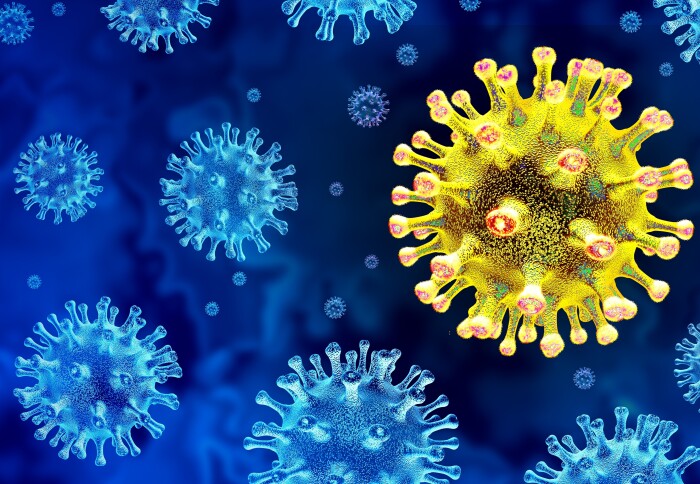New multi-million research projects announced to tackle future disease threats
by Ryan O'Hare

Imperial scientists are among those to lead ambitious new UK-based research to kickstart future vaccine development.
Three ambitious research projects will share £25 million in funding from UK Research and Innovation (UKRI), as part of a new effort to improve our understanding of viruses and how the immune system reacts to different challenges.
One of the projects, called the G2P2 consortium, will be led by Imperial’s Professor Wendy Barclay and aims to keep pace with the continually evolving variants of SARS-CoV-2.
This next stage could be crucial in tracking the most concerning variants, ultimately helping to inform vaccine policy to keep step with emerging threats Professor Wendy Barclay Department of Infectious Disease
Combining the consortium’s skills in molecular virology, G2P2 will track how genetic changes emerging in the virus affect phenotypes, including: the severity of illness the virus may cause; the range of cell types it can infect; how well it can evade the immune system; and how it is transmitted between people.
This will provide an evidence base to inform whether updates to current vaccines are needed and inform changes in policy based on increased risk to population health.
Professor Wendy Barclay, head of the Department of Infectious Disease at Imperial College London, said: “The first iteration of our G2P consortium brought together some of the UK’s leading expertise in virology to study the effects of emerging mutations in SARS-CoV-2.
“This next stage could be crucial in tracking the most concerning variants, ultimately helping to inform vaccine policy to keep step with emerging threats and the UK’s public health needs.”
Kick-starting vaccine research
The two other projects will focus on immune factors which impact on the effectiveness of vaccines, and predicting future threats to choose the most effective vaccines.
The ‘IMMPROVE’ project, led by the University of Oxford, will study why some people get infected after vaccination and whether delivering vaccines via the nose could result in better protection. The researcher hope the project could help to make better vaccines against COVID-19, as well as other respiratory pathogens such as flu.
The third project, led by the University of Cambridge, aims to enhance the SARS-CoV-2 vaccine strain selection process to provide the best possible protection for the UK population.
It will predict which variants may emerge in the future and measure immune responses against this potential future evolution. This will enable researchers to choose the variant of the virus to use in the next vaccine, necessary to protect those at high-risk of complications from COVID-19.
Research legacy
Maria Caulfield MP, Minister for Vaccines and Public Health said: “As we continue to learn from the pandemic, creating the next generation of vaccines is crucial to protecting the most vulnerable and managing future threats. These projects will enhance our understanding of infectious diseases, including Covid, and how our bodies react to equip us with the best tools to fight back.”
Dr Stephen Oakeshott, MRC Head of Infections and Immunity said: “These UK wide partnerships will build on the research legacy from our response to the COVID-19 pandemic, allowing the UK’s leading experts to deepen our understanding of how SARS-CoV-2 might evolve and how we might protect against future variants. We are committed to helping the country be better prepared for future pandemics.”
This article is based on materials from the UKRI. For more information, visit the UKRI website.
Article supporters
Article text (excluding photos or graphics) © Imperial College London.
Photos and graphics subject to third party copyright used with permission or © Imperial College London.
Reporter
Ryan O'Hare
Communications Division